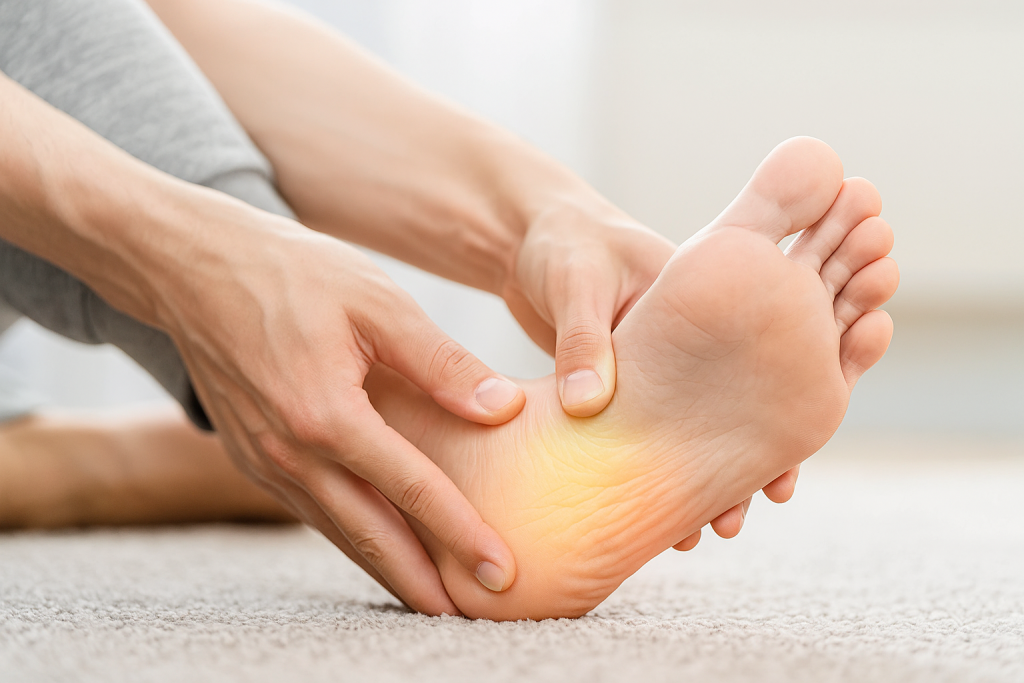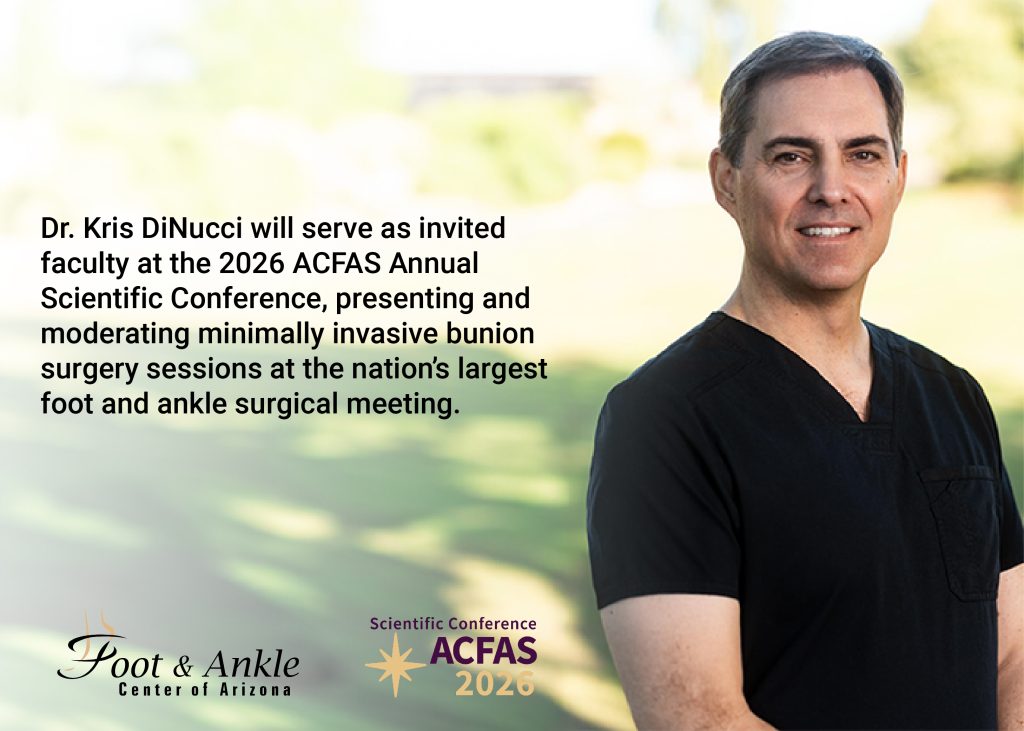Non-Surgical Procedures

At our office, these non-surgical procedures are minimally invasive and may only include a local anesthetic:
We offer Non surgical Foot and Ankle treatments, including allogenic growth factor injections, and Shockwave for a variety of painful foot and ankle conditions.
Allogenic Cell Therapy commonly referred by some physicians as ‘Stem cell’ Therapy is gaining popularity as a Non surgical Foot and Ankle treatment designed to improve or alleviate foot and ankle pain caused by a tendon, ligament or cartilage injury, as well as arthritis.
This form of healing medicine uses growth factors or proteins, which some physicians refer to as ‘Stem cell’ therapy originates from the mother’s amniotic sac (embryonic stem cells are not utilized) as it provides a supportive cushion to the developing child by providing protection, cushioning and lubrication. These specific nutrients, growth factors, and proteins help in tissue healing regeneration.
These components are well-known to lower inflammation, decrease scar tissue, and help against infection. These components are integral for providing the ultimate healing jump start to healing process with help re-grow cartilage, tendons and ligaments. Joint pain improves with high concentrations of hyaluronic acid, an integral component to lubricate and re-grow cartilage.
Clinical studies to document the efficacy of Non surgical Foot and Ankle treatments are currently ongoing. As this is an evolving area of science, our knowledge regarding the use of these treatments and patient outcomes continues to improve over time.
Shock wave therapy
EPAT has been successfully used for more than two decades to manage a variety of orthopedic conditions.
It is an effective and safe non-invasive treatment option for tendon and other pathologies of the musculoskeletal system. Treatments are very cost effective and affordable.
An optimum treatment protocol is three individual treatment sessions at 2-3 week intervals. Some patients at a later date may require a follow-up maintenance treatment for optimal results.
PRP for Ligaments and Tendons
When tendons and ligaments are damaged as a result of injury or overuse, small injuries or tears may develop as part of a condition known as tendinopathy. Tendinopathy is a general term used to describe a spectrum of tendon diseases from inflammation to complete rupture. Although these tissues are strong and help us engage in all kinds of physical activity when they are healthy, they do not heal well when damaged by a sprain or by overuse, as they commonly have a poor blood supply.
Certain elements within the blood help tendons and ligaments heal by stimulating a repair and growth response that accelerates the process of developing of new tissue. Unfortunately, the tendons and ligaments do not receive a rich supply of these valuable nutrients, which is why they often take a long time to heal and can cause patients severe pain within the joints of the lower extremities and other parts of the body.
What is platelet-rich plasma?
Platelet-rich plasma (PRP) is plasma with a high concentration of platelets, which contains a large amount of proteins. These proteins can initiate and accelerate new tissue growth within the tendons and ligaments to repair damage and relieve symptoms for patients with tendinopathy or other causes of chronic pain.
Injecting platelet-rich plasma into damaged tissue is an effective yet minimally invasive treatment option used to relieve pain and other symptoms caused by this chronic injury. By enhancing the body’s natural healing abilities, patients are able to enjoy a faster and more thorough healing process that relieves symptoms and allows them to return to their regular activities.
What is platelet-rich plasma used for?
Platelet-rich plasma injections can be used to treat a wide range of Foot & Ankle conditions, including:
- Plantar fasciitis
- Arthritis
- Ligament sprains or tears
- Tendonitis
- Bursitis
- Joint pain
- Nerve inflammation
- Shin splints
- Achilles tendonitis
How does this procedure work?
During the PRP injection procedure, a small amount of blood is taken from the patient and placed in a processing unit to separate the platelets, white blood cells and serum from the red blood cells. The platelets and white blood cells are then placed in a centrifuge and concentrated and loaded into a sterile syringe. Some of the patient’s blood is used as an activator and injected with the PRP into the targeted tissue to stimulate the healing process.
This procedure is performed under local anesthetic, which numbs the injection site to minimize pain for patients. Most patients tolerate the injection well and experience little to no discomfort from the injection.
Most patients require one to three PRP injections in order to achieve the desired results from this procedure. The doctors at Foot & Ankle Center of Arizona will evaluate your condition a few weeks after the initial treatment to determine whether or not additional injections are needed. Non surgical Foot and Ankle treatment is commonly combined with exercise or physical therapy in patients with acute injuries.
What can patients expect after the PRP procedure?
After platelet-rich plasma injections, patients may experience soreness and aching for several days, which is a sign that the healing process has begun. Over-the-counter anti-inflammatory medications are discouraged for first few weeks to avoid interference with the healing process. After this initial time they may be taken if needed to help alleviate these symptoms. Patients can return to work and other normal activities immediately after treatment, but should refrain from heavy lifting and strenuous activity. Commonly patients are placed in a fracture boot to rest the injured extremity.
What are the benefits of this procedure?
For many patients, platelet-rich plasma injections offer significant relief from pain and other symptoms, and eliminate the need for surgery or long-term medications. This treatment also promotes the healing process and allows patients to return to their normal activities faster than with other Non surgical Foot and Ankle treatments.
Are platelet-rich injections safe?
Since the PRP is produced from the patient’s own blood, there is very little risk for complications with this procedure. There is always a risk of infection with any type of injection, but most patients undergo this procedure with no problems.
Your doctor can help you figure out if this procedure is right for you. If you are interested in learning more about platelet-rich plasma injections, please call us today to schedule an appointment.
We continue to closely monitor our patients while collaborating with other field-leading colleagues to determine optimal preparations and applications. With experience, we now know that joints, tendons, muscles and nerves each require specific and unique formulations for best results which are routinely incorporated into our treatments.
For more information please click on the links below. As a Foot and Ankle specialist--Dr. DiNucci continues to advance his education of these treatments routinely. Please feel free call our office if you have any questions or to make an appointment at 480-342-9999
